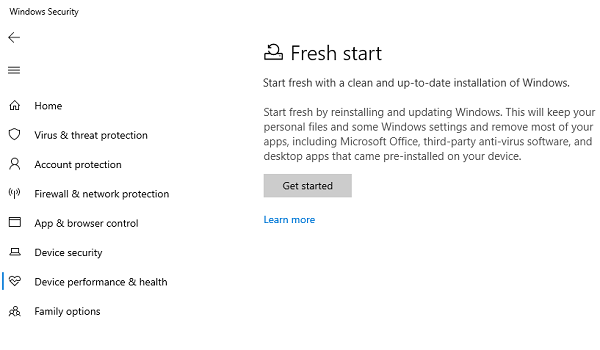There is a common belief that Linux is more secure than Windows. But is this really the case? Or is it simply a myth? In this blog post, we will explore the security features of both operating systems and see which one comes out on top!
Introducing Linux and Windows: What’s the Difference?
Linux is an open-source operating system that was created in 1991 by Linus Torvalds. It is based on the Unix operating system, which was also created in 1969. Linux is a popular choice for servers and other high-powered devices because it is stable and secure.
Windows, on the other hand, is a proprietary operating system that was created by Microsoft in 1985. It is the most popular operating system in the world, with over 90% of computers running on it. Windows is known for being easy to use and having a wide range of software available for it.
So, which operating system is more secure? Let’s take a look at some of the security features of Linux and Windows and see for ourselves!
Linux Security
Linux has often been touted as the more secure operating system by experts. One of the reasons for this is that Linux is open-source, which means that anyone can view and modify the code. This makes it more difficult for hackers to exploit vulnerabilities in the code because they can be found and patched more quickly, and there’s a large community of users out there who want to help.
Linux also has a number of security features built into it, such as file permissions and encryption. Also, the majority of Linux distributions come with a firewall enabled by default, which helps to protect your computer from attacks.
This means that Linux is known for being less susceptible to malware and viruses than Windows. This is backed up by the fact that Linux is not as widely used as Windows, so there are fewer targets for hackers to exploit.
However, Linux is not immune to security threats. In fact, a recent study found that over 80% of Linux servers are vulnerable to at least one high-severity security issue. So while Linux may be more secure than Windows, it’s important to remember that it’s not perfect.
No computer operating system is.
Windows Security Features
Looking at the other side of the coin, just because Linux has a lot of positive security features, that doesn’t mean that Windows is in a poor state. In fact, quite the opposite. The Windows operating system has a number of security features that, in many ways, can make it more secure than Linux for typical computer users.
For example, Windows Defender is a built-in antivirus and antimalware program that helps protect your computer from viruses and other malicious software. Windows also has a feature called BitLocker, which encrypts your hard drive and helps prevent data breaches.
Additionally, Windows has User Account Control, which prompts you before making changes to your computer that could impact its security.
So while Linux may have some advantages when it comes to security, Windows is no slouch either.
Which Operating System is Most Secure?
The truth is, there is no most secure or least secure. Both Windows and Linux machines have their own strengths and weaknesses, and it understands what these are that you’ll then be able to put measures in place to keep yourself safe.
So, how can you choose which operating system to use?
The best way is to look at your needs and requirements. If you need a stable, secure operating system for a server or other high-powered device, then Linux is a good choice.
You can also use Linux if you’re concerned about security and want to take extra precautions.
However, if you need an easy-to-use operating system with a wide range of software available, then Windows is the better option. This is backed up by the fact that Windows is the most popular operating system in the world, and pretty much every single app, website, or software will run on it, especially for the majority of computer users.
However, being the most popular for many users of all walks of life also means that it’s the most popular for hackers, especially when PC users who aren’t tech-savvy will be their easiest target.
So, which is more secure, Linux or Windows? The answer is: it depends. It all comes down to your needs and how you use your computer. If security is a top priority for you, then Linux is a good choice.
However, if you need to make a choice, the most user-friendly operating system is Windows, but you’ll have a lot more flexibility if you opt for a Linux system, but you will need to do be patient with the learning curve.
At the end of the day, it’s important to remember that no computer operating system is perfect, and you need to take measures to protect yourself from security threats, regardless of which one you choose.
Tips for Staying Secure on Linux
– Use a reputable Linux distribution and make you download it from a safe and secure place. Always read user reviews if you’re unsure.
– Keep your system up to date and always run the latest builds of your chosen system.
– Use strong passwords on everything.
– Install security software, or use an IT Support Adelaide service to handle your security on your behalf at a professional level.
Tips for Staying Secure on Windows
– Use a reputable antivirus program, and make sure you keep it updated to the latest versions.
– Keep your system and security software up to date. These updates contain necessary updates designed to keep your system safe from evolving threats.
– Use strong passwords
– Be careful about what you download and install. Only download from secured and reputable, certified developers and always run anti-virus software on the downloads beforehand. Also, read reviews and only download from secure websites.
Summary
As it turns out, both Linux and Windows have their own strengths and weaknesses when it comes to security. Linux is more secure than Windows in some ways, but Windows has features that make it more secure than Linux.
Ultimately, the best way to stay safe is to use both operating systems and be aware of the security risks associated with each one, so you can be proactive with staying safe.








Add Comment